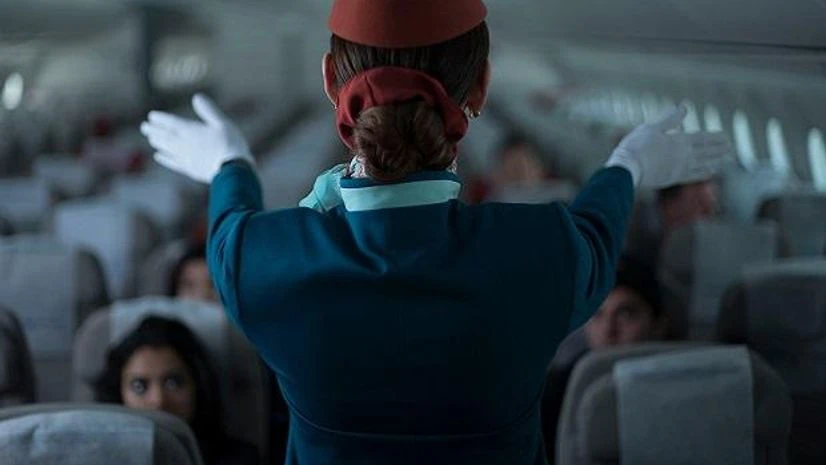After months of restricted access to travel, Indians are again swarming through airports, packing a raft of behaviour that can make flight experience terrible. Even with shrinking legroom and arguments over who gets the middle armrest, that is still not an all-excuse boarding pass for flyers to leave their manners behind on terra firma. While flyers need a refresher on in-flight etiquette, airlines, too, are sensitising and training their pilots, cabin crew, on-ground executives to handle untoward incidents involving unruly passengers to ensure aircraft safety, the Directorate General of Civil Aviation (DGCA) told airlines on Monday.
The aviation regulator issued an advisory to airlines reiterating the existing provisions in place to deal with unruly passengers.
The advisory comes against the backdrop of rising incidents involving disorderly passengers onboard flights and also on a day when a 25-year-old male passenger was offloaded by Air India from a Delhi-London flight for causing ‘physical harm’ to two cabin crew members.
Last Saturday, a drunk man attempted to open the emergency hatch mid-air on IndiGo’s Delhi-Bengaluru flight.
On March 20, an inebriated Swedish passenger molested a cabin crew member onboard IndiGo’s Bangkok-Mumbai flight.
On March 11, a US citizen was found smoking in the lavatory on Air India’s London-Mumbai flight.
More From This Section
The watchdog said that in the recent past, it has noticed a few incidents of smoking in aircraft, drunk passengers breaching flying etiquette, altercations between passengers, and sexual harassment by the passengers onboard “wherein post holders (airline executives), pilots, and cabin crew failed to take appropriate action”.
“Such incidents have the potential to compromise the safety of aircraft operations,” it added.
“Head of operations of all airlines are hereby advised to sensitise their pilots, cabin crew, and post holders on the handling of unruly passengers through appropriate means, including but not limited to training programmes,” the advisory noted.
This sensitisation aims at “ensuring effective monitoring, maintenance of good order, and discipline onboard the aircraft so that the safety of aircraft operations is not jeopardised in any manner”.
The regulator mentioned that the responsibility of an airline and its employees when handling rowdy flyers is specified under Aircraft Rules, 1937, as well as DGCA regulations.
Offences have been graded into three levels, with the ban period increasing with the severity of the infraction.
Level 1: Unruly physical gestures, verbal harassment and unruly inebriation: Ban up to three months.
Level 2: Physically abusive behaviour (pushing, kicking, hitting, inappropriate touching): Ban up to six months.
Level 3: Life-threatening behaviour — assaults, damage to aircraft systems, physical violence like choking and murderous assault: Ban is minimum of two years and can stretch indefinitely.
In line with the regulations, the decision to put an uncontrollable passenger on the no-fly list is based on the recommendation of internal committees constituted by the airlines to investigate such incidents.
In February, the Ministry of Civil Aviation said that domestic airlines banned 143 passengers from flying for disruptive and unruly behaviour in the past five years.
In a written reply to Rajya Sabha on April 3, Minister of State for Civil Aviation V K Singh said as many as 63 people were put on the no-fly list by airlines in 2022.

)
